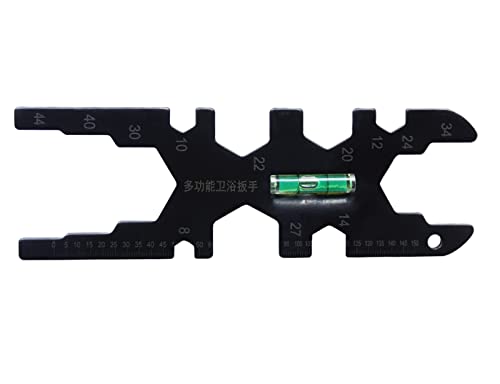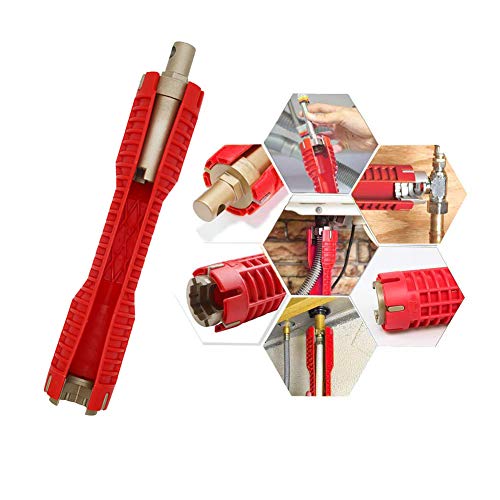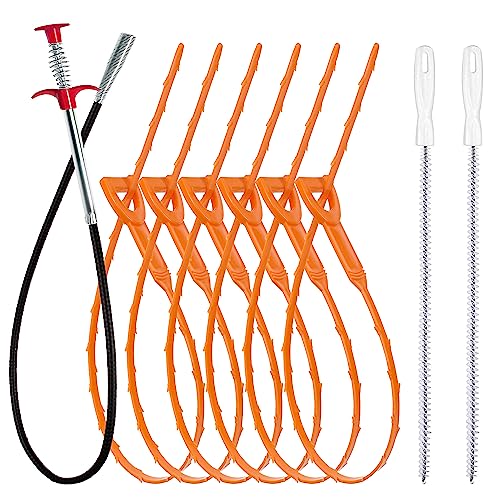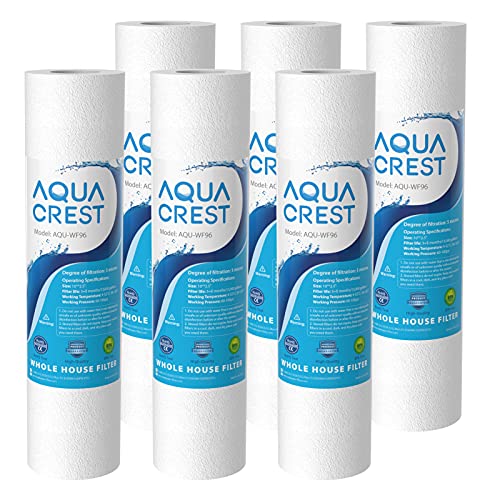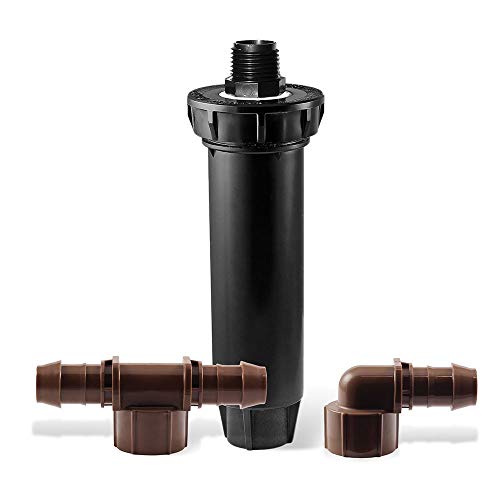Hello, we have a infloor radiant heat system that lost pressure recently. Have having the installer out he determined that the fluid (which was almost brown in color) needed replaced and he would add rust inhibitor. My question is this normal after only 2 years (two winters) of use? He said that he filled with high quality water/glycol mixture when he first filled system.
You are using an out of date browser. It may not display this or other websites correctly.
You should upgrade or use an alternative browser.
You should upgrade or use an alternative browser.
Radiant floor heat (closed system) needs fluid replaced after 24 months
- Thread starter grant0830
- Start date

Help Support Plumbing Forums:
This site may earn a commission from merchant affiliate
links, including eBay, Amazon, and others.
Well, obviously there's a leak! Also, air is somehow getting into the system, as you shouldn't have rust in the fluid--an air free, closed loop system shouldn't rust and you should be able to get away with a cast iron body circulator pump, not the more costly stainless steel or bronze which are required for potable water systems. Your system should have an air eliminator as well as expansion tank. You should not lose fluid.
I had a snowmelt system with 28 gallons of custom-blended glycol, two circulator pumps (though I opted for stainless and bronze simply because of availability and longevity not because they were necessary) at my home. That was fired with a 200K BTU heater. I also had a carwash with a similar system, but 3x the size in nearly every dimension. Never had a leak; in 10 years while I owned the home we still had all the fluid. So, no--losing fluid in two years of operation isn't normal.
However as all the PEX was buried in concrete, leak detection was costly and invasive; we thought we might have at one time, but we didn't. One method involved purging the system of fluid, and filling with compressed air and searching for a leak with sound. Another method involved pressurizing with helium or some other gas and using a sophisticated sniffer to detect the approximate location. Not easy, not cheap and then there's the repair...
I had a snowmelt system with 28 gallons of custom-blended glycol, two circulator pumps (though I opted for stainless and bronze simply because of availability and longevity not because they were necessary) at my home. That was fired with a 200K BTU heater. I also had a carwash with a similar system, but 3x the size in nearly every dimension. Never had a leak; in 10 years while I owned the home we still had all the fluid. So, no--losing fluid in two years of operation isn't normal.
However as all the PEX was buried in concrete, leak detection was costly and invasive; we thought we might have at one time, but we didn't. One method involved purging the system of fluid, and filling with compressed air and searching for a leak with sound. Another method involved pressurizing with helium or some other gas and using a sophisticated sniffer to detect the approximate location. Not easy, not cheap and then there's the repair...
- Joined
- Sep 28, 2014
- Messages
- 8,578
- Reaction score
- 2,977
Check for a collapsed air bladder in the expansion tank
and leaks.
in a heating system you need to check for leaks with the boiler off, water cool and pump running
hot water will cause piping to expand, hiding a leak, then as system cools leak appears
and leaks.
in a heating system you need to check for leaks with the boiler off, water cool and pump running
hot water will cause piping to expand, hiding a leak, then as system cools leak appears
Well it depends on where it is! If you are lucky it's somewhere in your heating system, not the tubing. Cracks happen and develop over time and get worse as heat causes pieces and parts to expand and contract.
I've had electrical shorts develop in low-voltage wire over a period of years due to a nail placed in the wrong place. I've had window seals break by improper framing, and years of expansion and contraction against a nail caused a break. So, stuff happens.
I've had electrical shorts develop in low-voltage wire over a period of years due to a nail placed in the wrong place. I've had window seals break by improper framing, and years of expansion and contraction against a nail caused a break. So, stuff happens.

$8.41 ($1.68 / Ounce)
Latwne Kitchen Repair Plumbing Tool Sink Faucet Key Plumbing Pipe Four-Claw Wrench Bathroom Wrench Tool Sets 4 Bayonet
Aiying1

$11.96 ($5.98 / Count)
$12.99 ($6.50 / Count)
GE FXWTC Whole Home System Replacement Filter Set, Pack of 2 - NSF Certified: Reduces Chlorine, Sediment, Rust & Other Impurities - Replace Every 3 Months for Best Results (replaces 910163)
Amazon.com

$39.77
Water Heater Insulation Blanket Fits 40 50 60 80 Gallons Tank R8 Silver / Black
Trade Winds / US Energy Products
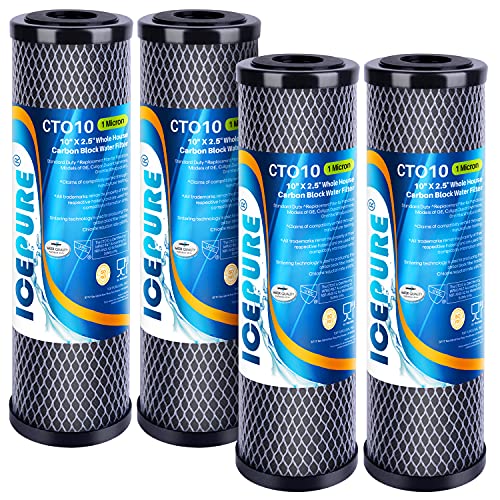
$23.59 ($5.90 / Count)
$29.99 ($7.50 / Count)
ICEPURE 1 Micron 2.5" x 10" Whole House CTO Carbon Sediment Water Filter Cartridge Compatible with DuPont WFPFC8002, WFPFC9001, SCWH-5, WHCF-WHWC, WHCF-WHWC, FXWTC, CBC-10, RO Unit, Pack of 4
ICEPURE Store

$9.88 ($0.12 / Fl Oz)
$10.77 ($0.13 / Fl Oz)
Liquid-Plumr Pro-Strength Clog Destroyer Gel with PipeGuard, Liquid Drain Cleaner - 80 Ounces (Package May Vary)
Amazon.com

$355.00
3M Aqua-Pure Whole House Sanitary Quick Change Water Filter System AP903, Reduces Sediment, Chlorine Taste and Odor
Buying Direct Corp: Free & Fast Shipping

$45.56
$93.79
Rain Bird LNDDRIPKIT Drip Irrigation Landscape/Garden Watering Kit with Drippers, Micro-Bubblers, Micro-Sprays
Amazon.com

$32.98 ($5.50 / Count)
Membrane Solutions 5 Micron 10"x2.5" String Wound Whole House Water Filter Replacement Cartridge Universal Sediment Filters for Well Water - 6 Pack
Membrane Solutions Corp

$30.99 ($15.50 / Count)
$39.99 ($20.00 / Count)
PUREPLUS 5 Micron 10" x 4.5" Whole House Sediment and Carbon Water Filter Replacement Cartridge for GE FXHTC, GXWH40L, GXWH35F, GNWH38S, Culligan RFC-BBSA, WRC25HD, PP10BB-CC, Pentek RFC-BB, 2Pack
PUREPLUS FILTERS

$23.99 ($12.00 / Count)
$26.99 ($13.50 / Count)
AQUA CREST FXHSC Whole House Water Filter, Replacement for GE® FXHSC, GXWH40L, GXWH35F, American Plumber W50PEHD, W10-PR, Culligan® R50-BBSA, 5 Micron 10" x 4.5", High Flow Sediment Filters, Pack of 2
Water Purity Expert

$28.29
$32.15
RIDGID 57003 EZ Change Plumbing Wrench Faucet Installation and Removal Tool
Standard Plumbing Supply
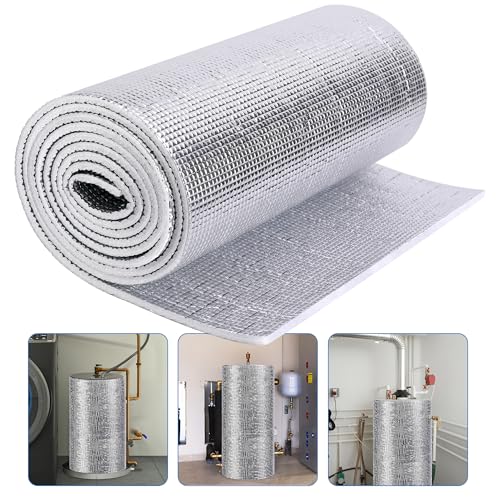
$29.88
moonoom Water Heater Blanket Insulation Wrap,13.1ftx 15.7in Aluminum Foil Hot Water Heater Cover,Hot Water Heater Jacket for Winter Heater Insulation
Trade Winds / US Energy Products
fixitron
Well-Known Member
The problem, or actually the symptom, is a loss of pressure in a heating system. What we don't know is how the loss in pressure was manifested and detected, whether the pressure gauge used is accurately reading the pressure, how much the pressure changed and how much the concentration of glycol changed. The heating system should have a minimum pressure maintained by the feed pressure regulator. We also don't know what the conditions were when the contractor filled the system 2 years ago. Was it an existing or a new system? Did he flush and clean the system before adding the glycol? Are there any signs of the relief valve lifting?
- Joined
- Sep 28, 2014
- Messages
- 8,578
- Reaction score
- 2,977
Hell if I knowwhat would/could cause the leak to present itself after 2 years?
You have not told us anything except it lost pressure
No details.














